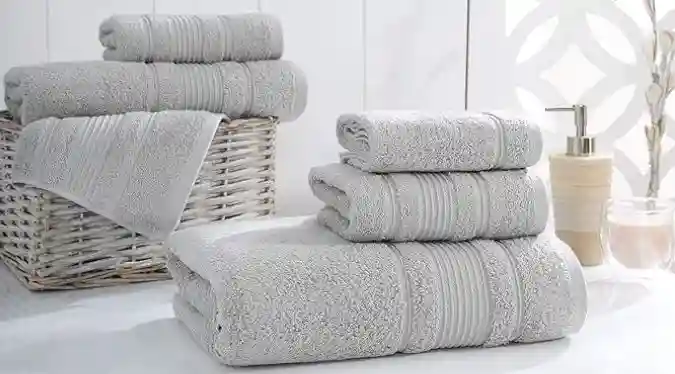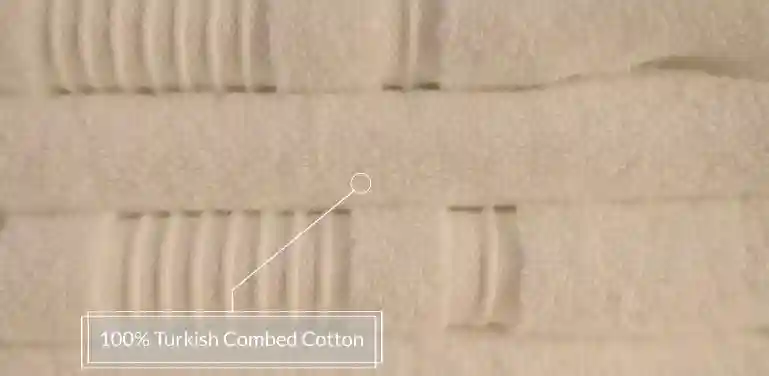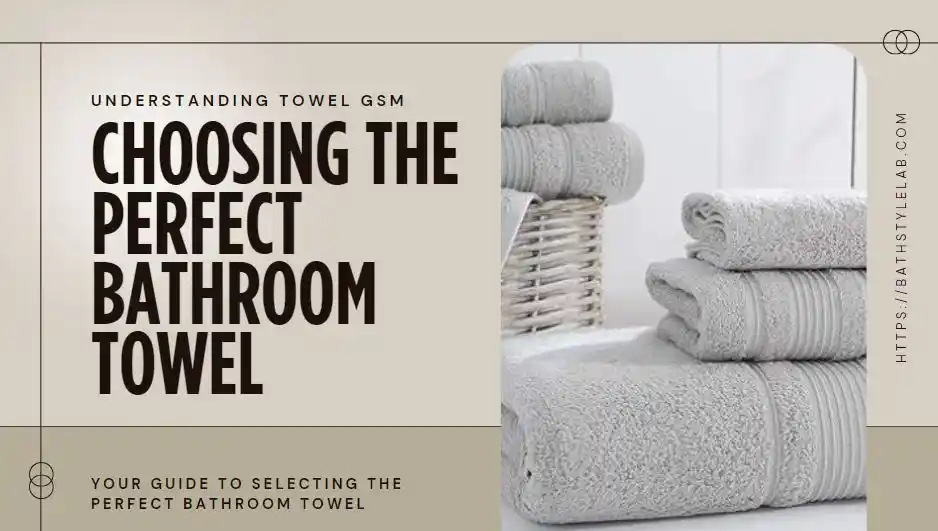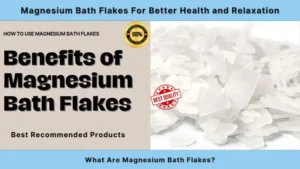Choosing the perfect bathroom towel can seem like a simple task, but there’s more to it than meets the eye. Let’s dive into the world of towels and find out how to select the best one for your bathroom needs.
Choosing the Perfect Bathroom Towel
When you step out of the shower, the first thing you reach for is a towel. But not just any towel will do. You want something soft, absorbent, and durable. With so many options out there, how do you pick the perfect one?
Understanding Towel Materials

When it comes to selecting the perfect bathroom towel, the material is key. Each type of material offers unique benefits and understanding these can help you make an informed choice.
Cotton Towels

Cotton is the champion of towel fabrics, prized for its natural softness and excellent absorbency. It’s gentle on the skin and comes in various types:
- Egyptian Cotton: Known for its long fibers, Egyptian cotton towels are incredibly soft and fluffy. They are highly absorbent and usually have a higher price tag due to their superior quality.
- Turkish Cotton: While similar to Egyptian cotton, Turkish cotton has a lighter and more quick-drying quality. It’s ideal for those who prefer a towel that dries faster between uses.
- Organic Cotton: For the eco-conscious, organic cotton towels are made without harmful pesticides or chemicals. They offer the same softness and absorbency as regular cotton but are a more sustainable option.
Microfiber Towels

Microfiber is a synthetic material known for its quick-drying properties. These towels are made from tiny fibers finer than silk, allowing them to dry rapidly and resist mildew. They’re not as fluffy as cotton but are perfect for travel or sports due to their compact nature.
Bamboo Towels

Bamboo towels are a newer entry in the towel market. They are made from the pulp of bamboo grass, which is converted into rayon. These towels are soft, durable, and naturally hypoallergenic. Bamboo is also a sustainable resource, making these towels an eco-friendly choice.
Linen Towels

Linen is made from the fibers of the flax plant and is one of the oldest textiles in the world. Linen towels are not as common as cotton or microfiber but are valued for their durability and natural mildew resistance. They are less absorbent than cotton but dry very quickly.
Towel GSM (Grams per Square Meter)
GSM is a critical factor in towel selection. It measures the density of the towel and affects how it feels and functions:
- Lower GSM (300-400): These towels are lighter and thinner, suitable for the gym or kitchen.
- Medium GSM (400-600): Ideal for hand and bath towels, offering a balance between absorbency and quick drying.
- High GSM (600-900): These are plush, luxurious towels that are highly absorbent and soft, perfect for creating a spa-like experience at home.
Special Considerations
- Antimicrobial Properties: Some towels are treated with antimicrobial agents to prevent mold and odor.
- Colorfastness: Look for towels that retain their color after multiple washes.
- Softness: Towels should feel soft to the touch without relying on synthetic softeners, which can decrease absorbency.
What are bathroom towel features?

Bathroom towel features refer to the various characteristics and properties that towels may have, which can enhance their functionality and user experience. Here’s an overview of what each feature means:
- Antimicrobial: Towels with this feature are treated to inhibit the growth of bacteria and mold, which helps keep them sanitary and odor-free.
- Breathable: These towels allow air to circulate through the fibers, which helps them dry quickly and stay fresh.
- Fade Resistant: Towels labeled as fade-resistant are made with dyes that maintain their color after multiple washes.
- Hanging Loop: A convenient loop sewn into the towel for easy hanging and drying.
- Hypoallergenic: Made from materials that are unlikely to cause an allergic reaction, making them suitable for people with sensitive skin.
- Lightweight: Towels that are light and easy to handle, making them a good choice for travel or gym use.
- Lint Free: These towels are designed to minimize the amount of lint or tiny fibers they shed, keeping your bathroom cleaner.
- Long Lasting: Towels that are durable and retain their quality and appearance over time.
- Low Linting: Similar to lint-free, these towels produce minimal lint, which can be especially important for those with allergies or respiratory issues.
- Midweight: Towels with a medium thickness and weight, offering a balance between absorbency and quick drying.
- Odor Resistant: Treated or made from materials that resist the buildup of odors, even when damp.
- Quick Dry: Towels that dry rapidly, reducing the time they stay wet and potentially develop mildew or odors.
- Reversible: Towels with patterns or textures that can be used on both sides.
- Sand Resistant: Ideal for beachgoers, these towels are designed to repel sand, making them easier to clean.
- Shrink Resistant: Made from materials that are less likely to shrink when washed and dried.
- Skin Friendly: Towels that are soft and gentle on the skin, often made from natural fibers.
- Super Absorbent: These towels can soak up large amounts of water quickly, making them very efficient at drying.
- Super Soft: Towels that feel very soft to the touch, often due to the type of material or the way they are woven.
- Tear Resistant: Made from strong materials that are not easily ripped or torn.
- Ultra Compact: These towels can be folded or rolled into a very small size, making them space-efficient for storage or travel.
- Wrinkle Free: Towels that maintain a smooth appearance without ironing, often due to a special fabric treatment or blend.
Each feature serves a specific purpose and can enhance your bathing experience depending on your personal needs and preferences.
Understanding Towel GSM: Your Guide to Selecting the Perfect Bathroom Towel
When choosing bathroom towels, GSM (grams per square meter) is an important factor to consider as it indicates the towel’s density and weight. Here’s a guide to help you understand what different GSM levels mean for towels:
- 300 to 400 GSM: These towels are lightweight, thinner, and less plush. They are suitable for gym use or in kitchens because they are easy to wash and dry quickly.
- 400 to 600 GSM: Towels within this range are medium-weight and strike a balance between absorbency and quick drying. They are good for beach and bath towels, offering a softer and more comfortable feel.
- 700 to 900 GSM: This is the range for luxury towels, which are heavy, extra-plush, and highly absorbent. They are typically found in high-end hotels and spas and provide a very luxurious feel.
A higher GSM generally means a thicker and more absorbent towel, but it also means the towel will be heavier and may take longer to dry. Lower GSM towels are lighter and dry faster, but they won’t be as plush or absorbent. Your choice should depend on your personal preference for towel thickness, softness, and usage. For everyday use in a home bathroom, many people find towels in the 500 to 700 GSM range to offer the best balance between luxury feel and practicality.
Choosing Hand Towels
Hand towels are smaller and used for drying hands. They should match or complement your bath towels. Look for ones with a GSM of 400-600 for a balance between softness and quick drying.
Matching Your Towels
Choose towels in colors that match your bathroom’s decor to create a cohesive look. You can also opt for neutral colors like white or gray for a classic look.
Recognizing Quality
A good bath towel has neat edges, no loose threads, and feels heavy for its size. It should also get softer with each wash, not rougher.
Luxury and Hotel Quality Towels

Luxury bath towels are made of high-quality materials like Egyptian or Turkish cotton and have a high GSM. Hotel quality towels are similar, often with a GSM of 700 or more, ensuring durability and a soft, plush feel.
Luxury and hotel-quality towels are designed to provide a luxurious and tolerant experience. Here are some key features that define them:
- Material: They are often made from high-quality materials such as Egyptian cotton, Turkish cotton, or bamboo. These materials are chosen for their superior softness, absorbency, and durability.
- Weight: Luxury towels are typically heavier, with a high GSM (grams per square meter) indicating a denser, plusher towel. For instance, towels from the Como collection are 700gsm, offering a plush, sumptuous feel.
- Size: Hotel-quality towels are usually larger than standard ones, providing more coverage and a more luxurious feel.
- Construction: The towels may feature a double-stitched hem and a dense loop construction, which not only adds to the towel’s longevity but also to its ability to absorb water quickly.
- Aesthetics: They often come in a range of sophisticated colors and may include elegant details such as monograms or decorative borders.
- Softness: The towels are designed to be exceptionally soft to the touch, often using combed cotton which removes impurities and shorter fibers to ensure a smooth texture.
- Absorbency: High-end towels are highly absorbent, quickly drawing moisture away from the body.
- Durability: Luxury towels are built to withstand frequent washing while maintaining their color, softness, and absorbency.
- Eco-Friendly: Some luxury towels are made with eco-friendly practices, using organic materials and sustainable methods.
Top Towel Brands
Some well-known brands of quality bath towels include The White Company, Brooklinen, and Scooms. These brands offer a range of options from budget-friendly to high-end luxury.
Expensive Towel Materials

When it comes to expensive towel materials, the luxury factor often comes from the quality of the material and the manufacturing process. The most costly towels are usually made of organic cotton or premium blends that offer extra softness and absorbency. Here are some materials known for being used in high-end towels:
Egyptian Cotton: Renowned for its long fibers, Egyptian cotton makes towels that are incredibly soft, fluffy, and absorbent. They are often considered the gold standard in luxury towels.
Organic Turkish Cotton: Valued for its long fibers similar to Egyptian cotton, organic Turkish cotton is also highly absorbent and soft. It’s a sustainable choice for those seeking luxury with an eco-friendly mindset.
Bamboo: Bamboo towels are not only soft and silky but also eco-friendly. They have natural antibacterial properties and are highly absorbent, making them a luxurious and practical choice.
Linen: Linen is a luxurious material known for its strength and ability to dry quickly. Linen towels are often more expensive due to the labor-intensive production of linen fibers.
These materials are sought after for their superior qualities and are often found in towels used by high-end hotels and spas, providing a touch of luxury and comfort to the bathing experience. These materials are a great place to start if you’re looking to invest in luxury towels.
The Towel Trick in Hotels
Hotels often use a folding technique that makes towels look fluffy and inviting. They also replace towels regularly to maintain quality.
How do I know which towel is best?
The best towel for you depends on your personal preferences for softness, absorbency, and durability. Consider trying towels made from different materials and with various GSM ratings to find what feels best against your skin.
How do I choose hand towels for my bathroom?
Look for hand towels with a GSM of 400-600 for a good balance between softness and quick drying. Choose colors that match or complement your bath towels and bathroom decor.
How do you match bathroom towels?
To match bathroom towels, select a color scheme based on your bathroom’s decor. You can choose towels in the same color for a uniform look or select complementary colors for a coordinated but varied style.
How do you know a good bath towel?
A good bath towel will feel heavy for its size, have neatly finished edges, and no loose threads. It should be made from quality materials like Egyptian or Turkish cotton and have a GSM that suits your preference for thickness and absorbency.
What are the best qualities of towels?
The best towels are soft, highly absorbent, durable, and quick-drying. They should maintain their color and texture after multiple washes and get softer over time.
What material is the best for bath towels?
Egyptian cotton is often considered the best material for bath towels due to its softness and high absorbency. Turkish cotton is also a great choice for its durability and quick-drying properties.
What is a good bath towel GSM?
A good bath towel GSM is typically between 500-700. Towels within this range offer a nice balance of plushness and functionality.
Which is better, Turkish or Egyptian cotton towels?
Both are excellent choices. Turkish cotton towels are more lightweight and dry quickly, making them great for frequent use. Egyptian cotton towels are thicker and more absorbent, providing a luxurious feel.
What makes a luxury bath towel?
A luxury bath towel is made from high-quality materials like Egyptian cotton and has a high GSM, usually above 600. It should feel plush, soft, and highly absorbent.
What is a hotel quality towel?
Hotel quality towels are similar to luxury towels, often with a GSM of 700 or more. They are designed to withstand frequent washing while maintaining softness and absorbency.
What brands are good bath towels?
Brands like The White Company, Brooklinen, and Scooms are known for their high-quality bath towels that offer a range of options from budget-friendly to luxurious.
Conclusion
Choosing the right towel is about balancing softness, absorbency, and durability. Consider the material, GSM, and brand when making your selection. Remember, a good towel can turn a regular bathroom into a spa-like retreat.
Disclosure: This content is reader-supported, as an Amazon Associate, we earn from qualifying purchases. Support us!



